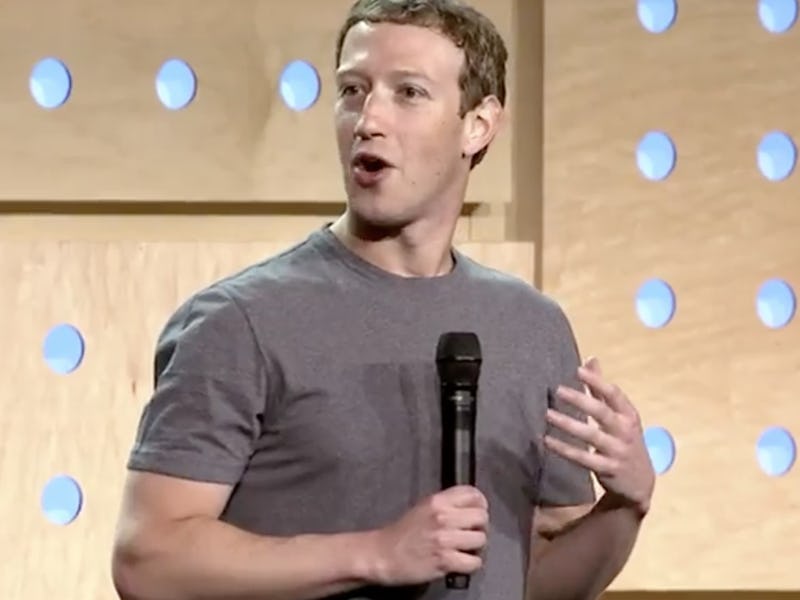Want a Dislike Button? Zuckerberg Says Reactions Closest We'll Get "for a Long Time"
The thumbs down is not coming.

Facebook founder Mark Zuckerberg told an audience member during a “town hall”-style question-and-answer session today in Berlin that we should all just chill with the calls for a “dislike” button, and highlighted Facebook’s new “reactions” feature as a better solution.
“Will we ever get a dislike button?” asked a questioner who, in an apologetic tone of voice, said the concept is still coming up at dinner parties.
Here are the highlights from Zuckerberg’s response — one he’s given a few times over the years — but just this week, he finally had a solution with those new reactions.
“This week we rolled out reactions, I think that’s as close as we’re going to get for a long time.”
Anybody wishing that Zuck would have demanded, “next question!” would be disappointed. He continued:
“For years and years, people in our community were asking for a dislike button and for a while we thought, ‘Hey, that’s mean, why would you want to say that you don’t like someone’s post?’ After talking to people, after years and years of this, I realized that people didn’t want to vote down other people’s posts, what they wanted to do was express empathy for things that were not happy, because not every moment in the world is a happy moment.”
And:
“There are going to be a lot of times where something bad happens, where someone in your family gets sick or there’s something controversial, like refugee crisis that people want to talk about because it’s meaningful and important but the right reaction that to that kind of stuff isn’t always to like it.
“It might not make you feel comfortable liking a post about suffering in different parts of the world. But we think there needs to be a place for that in our community, and we don’t want the fact that people don’t get any feedback — because people don’t hit the like button on that content — to make the people who would otherwise talk about that think this isn’t the place to talk about that. It’s the social feedback that helps us figure out what we should be engaging in.”
Zuckerberg wrapped by saying that reactions offer more emotions:
“We hope that by creating reactions and giving people the ability to say they are angry about something or that something makes them sad, or that they love something or think something is funny, that it will just expand the emotional range of content that people feel comfortable sharing on Facebook. People should have the power to talk about hard things, too.”
And finally:
“That’s what I hope we’ve done with reactions. We really want to make sure we go this right. The like button is one of the most iconic and important parts of the Facebook product, and it’s been here for many, many years at this point. We want to make sure we didn’t mess this up before rolling it out widely, which is why we had such a long test. But in our initial tests, in a bunch of different places around the world, we found that it does increase the amount that people feel comfortable talking about these different kinds of topics, which was exactly the goal.”
TL;DR: The thumbs-down is not coming.
It’s been a busy week for the 31-year-old: On Thursday in Berlin, Zuckerberg held a “fireside chat” to announce an ambitious new artificial intelligence plan, and earlier this week in Barcelona at Mobile World Congress he said he supported Apple in its legal battle against the FBI.